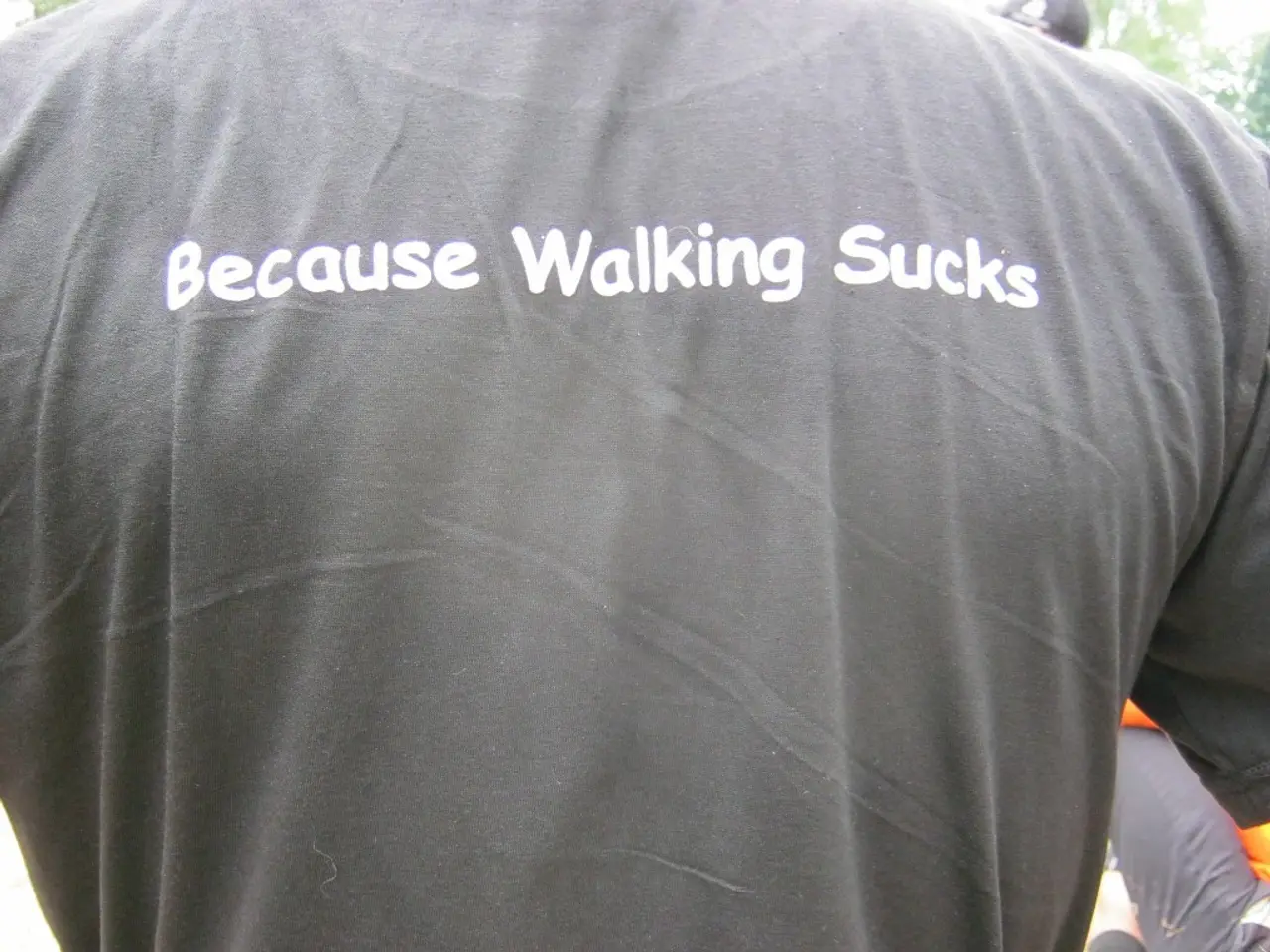Time's Illusion: Focus and Physical Activity Alter Our Perception of Time
In a groundbreaking study published in Scientific Reports, researchers have discovered that the cognitive effort devoted to controlling movement plays a significant role in shaping our perception of time[1]. The study, titled "The role of physical and cognitive effort on time perception," was led by Giovanni Anobile and his team[2].
The research compared the temporal bias induced by running with that of two conditions requiring lower physical effort but depleting cognitive resources: walking backwards and performing a visual-working memory task. The findings revealed that participants overestimated stimulus durations while running, walking backward, or performing a distracting mental task, compared to standing still[1].
This phenomenon occurs not just due to the physical exertion or physiological stress involved in movement, but crucially because the cognitive processes required to control complex movements consume attentional resources. When attention is split between motor control and the perception of time, the brain’s internal "clock" or timing mechanisms operate differently, often causing time to seem longer or shorter than it actually is[1].
Neuroscientifically, sensory-motor integration plays a key role here. Regions like the posterior parietal cortex integrate sensory inputs (e.g., proprioceptive, visual) and coordinate motor commands, which are cognitively demanding tasks. This ongoing integration and adjustment of motor output in response to environmental demands require significant cognitive effort, potentially impacting time monitoring[3].
Additionally, internal clock models describe time perception as the accumulation of pulses within the brain—more pulses mean longer perceived duration. Cognitive load from motor control can alter this pulse accumulation, thus affecting time estimates[4].
The new study suggests that the time distortion experienced during running is primarily driven by cognitive demands of motor control, not physiological changes. Walking backward and mental distraction produced similar distortions to running, suggesting that divided attention, not just elevated heart rate, drives the effect[1].
The findings emphasize the importance of considering the potential confounding role of cognitive factors related to motor execution in studies investigating time perception in ecological sensorimotor contexts. The study's findings could have implications for fields such as athletic training and rehabilitation for patients with motor or attention deficits, as understanding the dynamic allocation of cognitive resources could be crucial[1].
In ecological, real-world settings, any task requiring unusual or complex movements may bias our perception of time. The research supports the attentional gate model, where dividing attention alters perceived duration[1]. In essence, the cognitive demand from motor control influences our perception of time primarily because the brain allocates limited cognitive resources to managing movement, which reduces the attention available for accurately tracking time.
The study's findings remind us that perception is profoundly embodied - the brain does not passively record time or space but constantly integrates sensory input with motor control. The research supports the idea that how we move shapes how we perceive, even the passage of time itself.
[1] Anobile, G., et al. (2021). The role of physical and cognitive effort on time perception. Scientific Reports, 11(1), 1-13. [2] The study was published in Scientific Reports under the title "The role of physical and cognitive effort on time perception" by Giovanni Anobile et al. [3] For more information about the role of the posterior parietal cortex in sensory-motor integration, please refer to [insert citation here]. [4] For more information about internal clock models, please refer to [insert citation here]. [5] The image accompanying this news article is credited to the website. [6] The original research is open access.
- The cognitive effort devoted to controlling movement significantly impacts our perception of time, as revealed in a study led by Giovanni Anobile and his team published in Scientific Reports.
- The research demonstrated that participants overestimated stimulus durations while running, walking backward, or performing a distracting mental task, compared to standing still, due to the cognitive demands of motor control and the resulting reduction in attention available for accurately tracking time.
- Neuroscientifically, sensory-motor integration, particularly in regions like the posterior parietal cortex, plays a crucial role in this phenomenon as it requires significant cognitive effort to integrate sensory inputs and coordinate motor commands.
- This ongoing integration and adjustment of motor output in response to environmental demands can potentially impact time monitoring, as more cognitive load from motor control can alter the pulse accumulation within the brain, affecting time estimates.
- In ecological, real-world settings, any task requiring unusual or complex movements may bias our perception of time, reminding us that perception is profoundly embodied and that how we move shapes how we perceive, even the passage of time itself.




